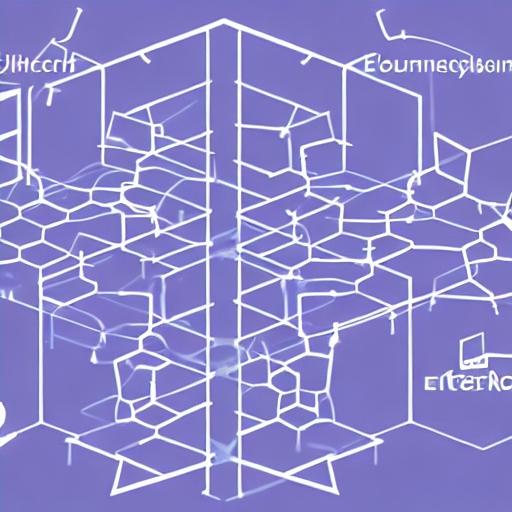In the world of blockchain and cryptocurrencies, Ethereum has emerged as a trailblazer, offering more than just a digital currency like Bitcoin. It is an open-source, decentralized platform that enables developers to build and deploy smart contracts and decentralized applications (DApps). But what is the concept behind Ethereum that sets it apart from its counterparts?
At its core, Ethereum operates on the principle of blockchain technology, which is a distributed ledger that records all transactions across a network of computers. However, Ethereum takes this concept a step further by incorporating a Turing-complete programming language, allowing developers to create and execute Smart Contracts.

Smart Contracts are self-executing contracts that automatically carry out the terms of an agreement once the conditions are met. They eliminate the need for intermediaries, such as banks or lawyers, as the code itself enforces the contract. This not only saves time and money but also enhances security and transparency. The potential applications of Ethereum and Smart Contracts are vast and diverse, ranging from supply chain management to decentralized finance.
One of the key differentiators of Ethereum is its ability to generate and use its own cryptocurrency called Ether (ETH). Ether serves as the fuel for the Ethereum network, as it incentivizes participants to perform the necessary computational work to validate and process transactions. Additionally, Ether can also be used as a medium of exchange, similar to Bitcoin.
The Ethereum Virtual Machine (EVM) is another revolutionary concept tied to Ethereum. It is a runtime environment that executes Smart Contracts on the Ethereum network. The EVM is designed to be sandboxed and isolated, ensuring that the code of one Smart Contract cannot interfere or access the code of another. This level of security and isolation is crucial to maintain trust and prevent malicious activities.
Furthermore, Ethereum is backed by a vibrant and diverse community of developers, enthusiasts, and businesses. This collaborative community has contributed to the growth of Ethereum and the development of countless DApps. Its extensive ecosystem provides various tools, libraries, and frameworks to simplify the creation of Smart Contracts and DApps.
As Ethereum gains more popularity, it has also faced criticism, primarily regarding scalability and energy consumption. The Ethereum network faces challenges with scalability as it strives to process a large number of transactions. However, the Ethereum community has been actively working on solutions, such as Ethereum 2.0, to address these concerns.
In summary, Ethereum’s concept of combining blockchain technology with Smart Contracts has sparked a revolution in the world of finance and beyond. Its ability to facilitate self-executing agreements and support the creation of decentralized applications has opened up endless possibilities. With its active community and continuous innovations, Ethereum is poised to shape the future of finance and revolutionize industries.
